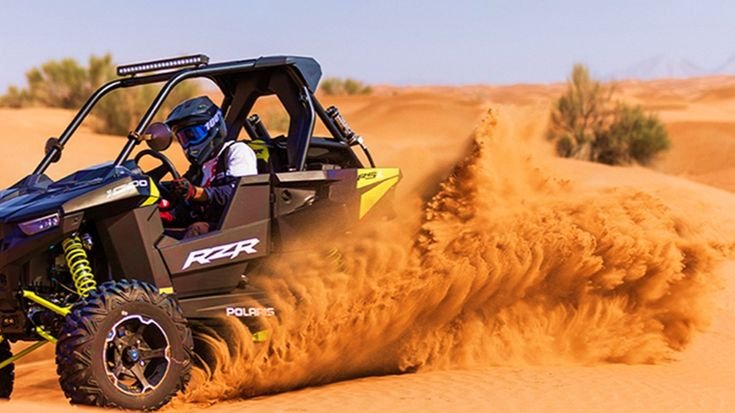Cultural Immersion Experiences on a desert safari Deals

Cultural Immersion Experiences on a desert safari Deals
Beyond the Adventure
When people think of a Dubai desert safari, the first images that come to mind are often dune bashing, quad bikes, or adrenaline-fueled rides across golden sands. But for many travelers in 2025, the real magic lies not only in the thrills but also in the authentic cultural experiences the desert has to offer. A journey into the dunes is also a journey into history—a chance to step into the lives of the Bedouins, hear their stories, taste their cuisine, and embrace traditions that have thrived for centuries.
This side of the safari appeals to those seeking more than adventure—it’s for those who crave connection, culture, and authenticity.
The Heart of Bedouin Culture
The Bedouins are the nomadic population of Arabia and the essence of life in the desert safari Deals. They have lived generations in complete harmony with the harsh environment of the desert, being dependent on camel rides, falcons and oral stories to survive. In the Dubai desert safari, the tourists are invited to this world, where the skyscrapers and the malls are irrelevant, and the desert rhythms are relevant.
The tourists can also sit on traditionally designed majlis tents, drink gahwa (Arabic coffee) and listen to those who narrate the legends that were once told orally under starlit skies. This cultural experience makes the safari a personal experience with culture.
Camel Trekking: Walking in Ancient Footsteps
The only means of crossing the huge desert before cars and quads was by camels. Camel trekking is one of the most authentic aspects of a Dubai desert safari that is still present today. The slow pace of each step will allow travelers to learn how traders and Bedouins would walk between the oases.
A number of safaris are also beginning to offer extended camel rides that extend out of the dunes and may even include overnight wilderness camps. This gives the adventurers a chance to enjoy the silence, loneliness and wilderness of the desert, the same way Bedouins did.
Falconry: The Desert’s Ancient Sport
The connection of the falcon with the Emirati identity is strong. During cultural safari tours, one may get to witness falconry display activities where the visitors get to see how fast, accurate, and loyal such birds are.
Falconry is not entertainment; it is history. Falcon and Handler relationship means survival in the desert, where hunting used to be sustenance. When visiting a Dubai desert safari, it is common that one gets to hold a falcon, find out about its training and participate in a tradition that UNESCO has recognized as an Intangible Cultural Heritage of Humanity.
Traditional Performances Under the Stars
The safari camp in the desert is the pulse of the evening safari. As it grows dark and lanterns light up the sands, guests will be presented with a display of cultural arts.
Tanoura Dance
It is an amazing dance performed by men wearing colorful skirts and spinning continuously, which is a symbol of the spiritual connection between earth and sky.
Oud & Drums
Other camps will have live music with traditional instruments such as oud (lute) and tabla (drums), which will give the evening entertainment a very authentic feeling.
When this is performed under a vast desert sky, it is far greater than anything in a theater.
Al Ayala Dance
At night, the Al Ayala Dance, also known as the Stick Dance, is in the limelight of the desert. It was done by men in two lines dancing in rhythm with bamboo canes to the beat of drums and songs, which expresses oneness and pride in the Emirati culture. This cultural show against the backdrop of stars enriches and provides the Dubai Desert Safari with a touch of authenticity, a blend of tradition and the magic of the desert night.
Bedouin Cuisine: A Taste of Authentic Arabia
Culinary food is among the strongest instruments of cultural immersion, and the Dubai desert safari provides this dose in copious amounts. Arabic coffee and dates (symbols of hospitality) are served to guests, who then partake in a buffet or live cooking stations of Middle Eastern delights.
Order such dishes as lamb ouzi (slow-cooked meat mixed with spiced rice), grilled kebabs, fresh breads, and spreads of mezze with hummus, tabbouleh and moutabal. The lentil soups and falafel are also offered to vegan travelers.
You will not forget every bite when eating in an open-air camp, with the desert wind and live music in the background.
You can also read: Dubai Desert Safari Hidden Gems: Discover What Most Tourists Miss
Henna & Handicrafts: Personal Cultural Connections
For travelers who want something more personal, many safaris include henna painting. Beautiful and symbolic, this ancient art consists of complicated patterns created on hands or feet with the help of natural dye.
Carpet weaving, pottery or jewelry making are also demonstrated by artisans in some camps. These crafts can be viewed, studied, and in some cases attempted by the guests themselves. This practical methodology means that culture is not merely looked at; it is felt.
Overnight Safaris: Sleeping Under the Desert Sky
Whereas evening safaris are main attractions, overnight stays take the cultural experience to a whole new level. In the remote regions the tourists stay in Bedouin tents with comfortable bedding.
It also includes late-night storytelling, telescope use to gaze at the stars and waking up to see the sunrise in the desert. Bread baked against open fires and strong Arabic coffee are usual for breakfast and an ideal conclusion to a night of tradition.
For those seeking raw authenticity, the overnight Dubai desert safari is unmatched.
Cultural Sustainability: Keeping Traditions Alive
With Dubai modernizing, there is the chance that traditions will fade. The culturally oriented safaris play an important part in heritage protection. The operators assist the artisans, trainers and Bedouin families to preserve their tradition by providing falconry, camel rides and traditional food.
Tourists can also play a role in this by opting to have an experience that respects authenticity instead of mass entertainment. In that aspect, all Dubai desert safaris that focus on culture are a type of heritage protection.
Who Should Choose a Cultural Safari?
While adrenaline safaris appeal to thrill-seekers, cultural safaris are best suited for:
- Families with children eager to learn about heritage
- Couples looking for a romantic, soulful escape
- Solo travelers interested in history and traditions
- Anyone seeking a slower, more reflective desert experience
It’s perfect for those who want to connect with the desert on a deeper level, beyond just speed and adrenaline.
The 2025 Trend: Authenticity Over Spectacle
Tourists are changing their tastes. Instead of simulated experiences, they desire the authentic. Safari operators are now reacting to this by adding smaller group tours, personal cultural camps and real-life storytelling sessions with Bedouin families in 2025.
This trend implies that a Dubai desert safari is not about large crowds sitting to watch the same show anymore. It is all about intimate, unpolished experiences that are real and honest.
Tips for a More Authentic Experience
- Choose wisely: Select operators known for cultural focus rather than only entertainment.
- Engage with locals: Don’t just watch—ask questions, learn, and participate.
- Stay overnight: Extend your safari to fully absorb the desert’s rhythm.
- Taste everything: From gahwa to lamb ouzi, the food is as much heritage as the dances.
- Disconnect: Put away devices for a while and let the desert atmosphere work its magic.
Conclusion: Rediscovering the Desert’s Soul
Dubai Desert safari is not a simple thrill ride, as it is a trip to the heart of the Arabian culture. The visitors are carried away by the good and memorable impressions by adopting the Bedouin lifestyle, falconry, entertainment, meals, and accommodation at night.
The desert call of 2025 is not merely a call of adventure but also a call of authenticity. To the cultural pilgrim, the dunes represent a museum of the living at the border of past and present—and every sunset has a story.
FREQUENTLY ASKED QUESTIONS
-
What makes a cultural Dubai desert safari different from a regular safari?
A cultural safari is more of a heritage and not merely an adventure. As much as you can still have fun on the dune rides, the best thing is the Bedouin traditions: camel riding, falconry, henna painting, traditional performances and traditional Arabian cuisine.
-
Is a cultural safari suitable for families with children?
Yes, it is a great family decision. In a child-friendly setting, kids get the opportunity to safely play with camels, falconry, henna painting and sample new foods. It is fun and informative.
-
Do cultural safaris include overnight stays?
Some also provide stayover options that allow tourists to spend a night in Bedouin tents, attend a late-night storytelling session, and wake up to a desert sunrise. This adds an added dimension and reality to a Dubai desert safari.
-
What kind of food is served on a cultural Dubai desert safari?
Visitors are offered Arabic coffee and dates at the entrance and Arabic food items like lamb ouzi, grilled kebabs, fresh breads, mezze plates, and vegetarian foods such as lentil soup and falafel are served. In desert camps, meals are likely to be prepared in a traditional way.
-
How do cultural safaris help preserve Bedouin traditions?
These safaris are helping to sustain the cultural practices of falconers, camel trainers, artisans and cultural performers by giving them a livelihood to continue with. Travelers have a role to play too when they prefer an authentic and heritage-based experience, not a commercial experience.
All Categories
- Abra Dubai
- Abu Dhabi City Tour
- Adventure in Desert Safari
- Ai
- Ain Dubai
- Al Ain
- Al Fahidi Historical Neighborhood
- Al Faya Desert
- Al Qudra Desert
- Al Qudra Lake
- Atlantis Dubai
- Atlantis The Royal
- Attractions and Hidden Places
- Banking
- Beaches in Dubai
- Belly Dance In Desert Safari
- Bidayer Desert
- Burj Al Arab
- Burj Khalifa
- Business
- Camel Rides
- Camel Riding in Dubai
- Canary Club Dubai
- Deep Dive Dubai
- Deira Dubai
- Desert Safari
- Desert Safari Dubai
- Dhow Cruise Dubai
- Dolphin Show Dubai
- Downtown Dubai
- Dragon Mart
- Drift Beach Dubai
- Dubai
- Dubai Aquarium
- Dubai City Tour
- Dubai Creek Park
- Dubai Crocodile Park
- Dubai Fountain
- Dubai Frame
- Dubai Garden Glow
- Dubai International Airport
- Dubai Mall
- Dubai Marina Mall
- Dubai Marina Walk
- Dubai Parks And Resorts
- Dubai Safari Park
- Dubai Shopping Festival
- Dubai Skyline
- Dubai Water Canal
- Dune Buggy Dubai
- Eid ul Adha
- Eid-al-Fitr in Dubai
- Evening Desert Safari
- Expo 2020 Dubai
- Fun in Desert Safari
- Global Village Dubai
- Gold Souk Dubai
- Green Planet Dubai
- Hatta Dam
- Ibn Battuta Mall
- IMG World Dubai
- Jebel Jais
- Jet Ski Dubai
- Jumeirah Mosque
- Khor Fakkan
- Khorfakkan Waterfall
- Kite Beach Dubai
- La Mer Dubai
- Lahbab Desert
- Largest Mall in The World
- Love Lake Dubai
- Madame Tussauds Dubai
- Mall of the Emirates
- morning desert Safari Dubai
- Motiongate Dubai
- Museum Of The Future
- New Year's Eve
- Old Dubai
- OliOli Museum
- Overnight Desert Safari Dubai
- Palm Jumeirah
- Places to Visit in Ajman
- Places To Visit In Sharjah
- Quad Bike in Dubai
- Ras Al Khaimah
- Rashid Hospital Dubai
- Restaurants in Dubai
- Riverland Dubai
- Salt Bae Dubai
- Sharjah Aquarium
- Solo Travelers on a Desert Safari
- Sun During The Desert Safari Dubai
- Temperature in Dubai
- Theme Parks
- Things to do in Abu Dhabi
- Umm Suqeim Beach
- Uncategorized
- VR Park Dubai Mall
- World Trade Center Dubai
- Yacht Rental Dubai
- Zabeel Park Dubai




